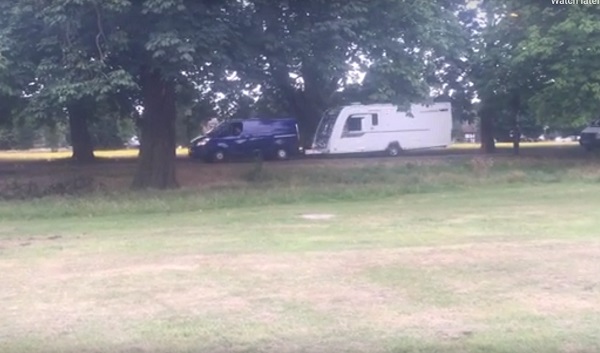Travellers Move On From Ealing Common
Latest group of caravans evicted less than a day after arriving on site

|
Travellers who set up an encampment on Ealing Common have reportedly been moved on after less than a day at the site.
Councillor Joanna Dabrowska said she was present when the group of a dozen or so caravans arrived on Sunday evening at around 8pm.
Writing on her Ealing Common Conservatives website, Ms Dabrowska said bailiffs had been called to the site at around 1.30pm yesterday and the travellers were packing up.
Ealing Council confirmed the encampment was evicted yesterday.
Despite notices that stated the interim injunction ended on July 19, a council spokeswoman said the injunction remains in place in full.
She said: "Ealing’s application may have been adjourned last Friday, pending the outcome of Bromley’s appeal, but the order remains in place until such time as that appeal process has completed."
Ms Dabrowska said, “I hope common sense will prevail, that the courts will understand that unauthorised encampments are just that, they are not allowed, yet they still occur regardless of the law.”
London Gypsies and Travellers (LGT) spokeswoman Debby Kennett told The Local Democracy Service previously that more than 20 councils in Britain had obtained injunctions, but they did not offer a solution, and were “a disproportionate and discriminatory response to the accommodation needs of gypsies and travellers”.
LGT challenged a similar ban from the borough of Bromley at the Royal Court of Justice, with the organisation expecting the outcome to have big implications for other injunctions around London.
Ms Kennett argued that councils had failed in their obligation to provide camping spots for travellers.
She said: “Because of the lack of caravan site provision for gypsies and travellers, the injunctions simply push them to stop on the roadside in other areas.
“Across London, just 10 new pitches have been built out of over 800 identified as needed in a study commissioned by the Greater London Authority in 2008.”
Ged Cann Local Democracy Reporter
24 July 2019 ( updated)